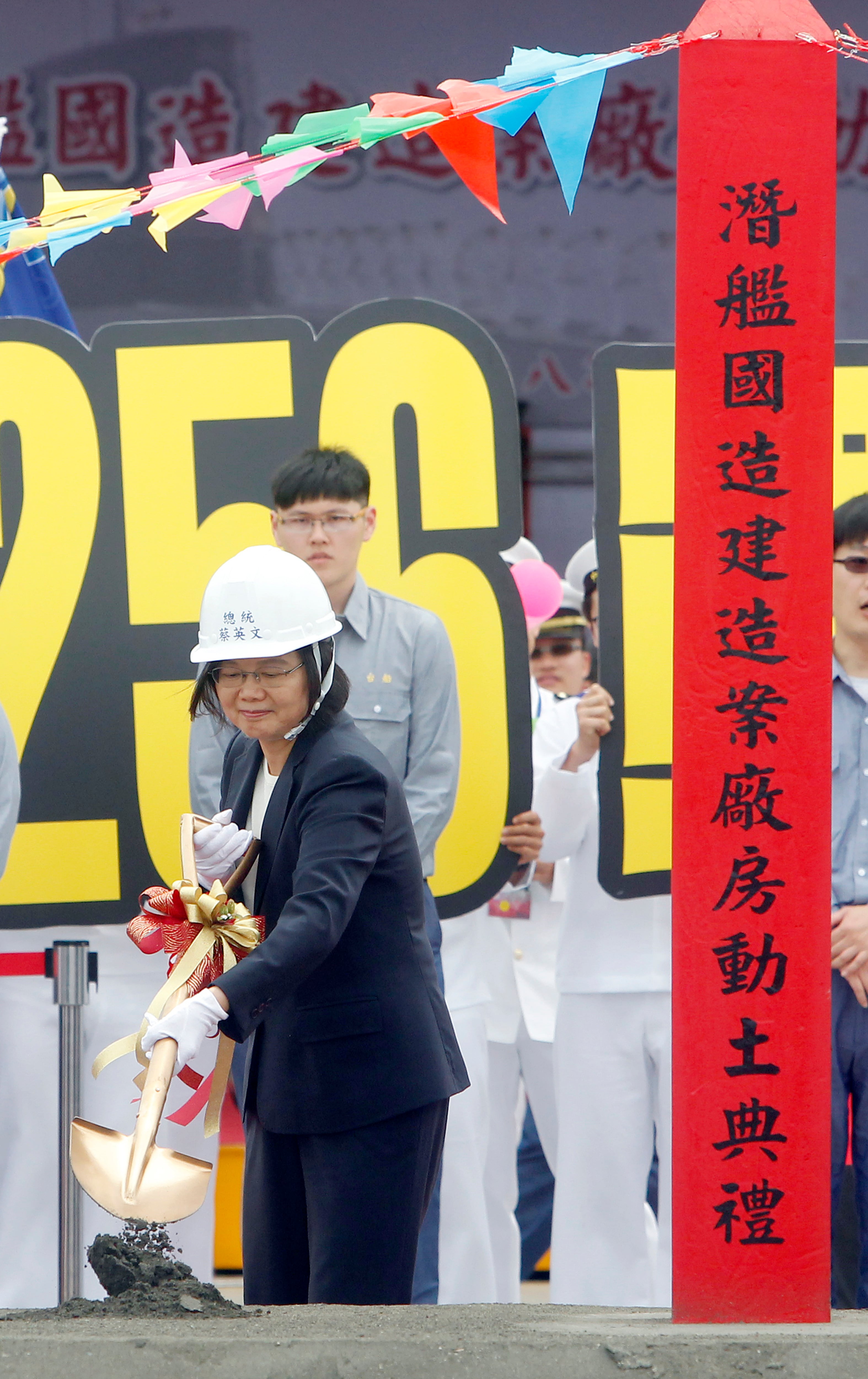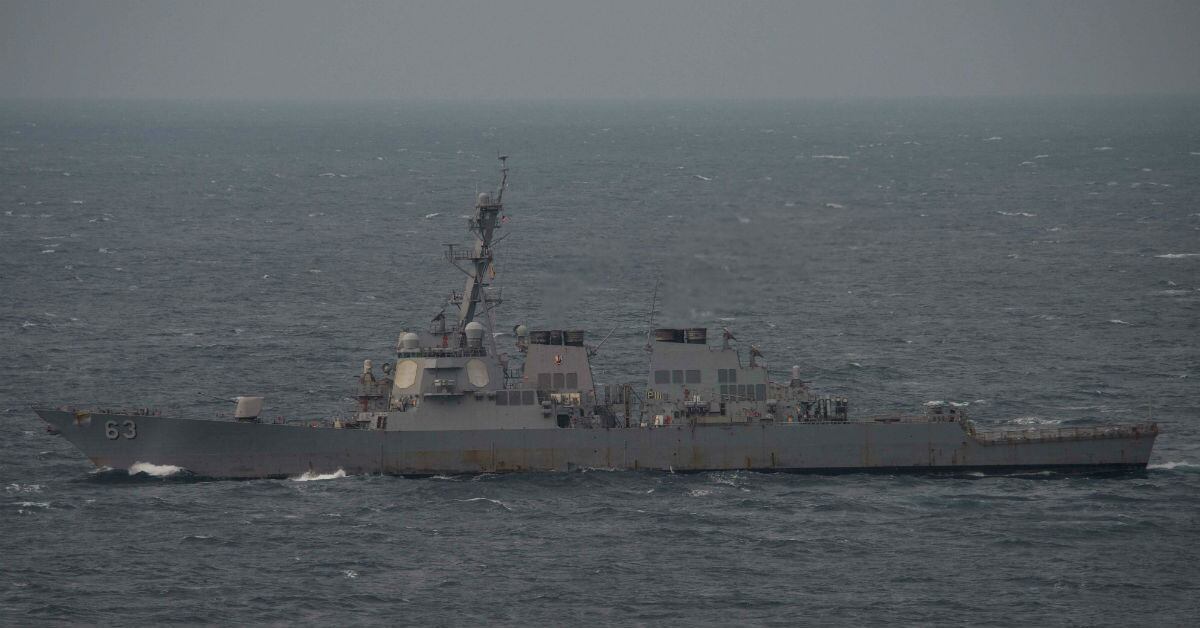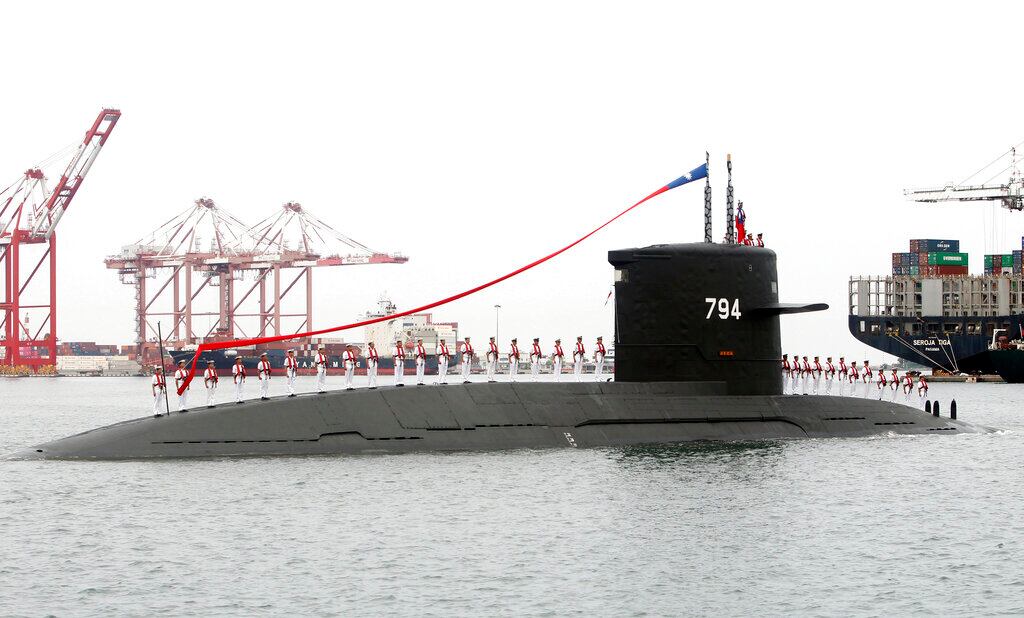KAOHSIUNG, Taiwan — Taiwan broke ground Thursday on a shipyard to produce submarines to counter China’s growing military threat.
The self-governing island’s President Tsai Ing-wen presided over a ceremony in the southern port city of Kaohsiung, saying submarines were an effective way to deter a foe from surrounding the island by sea.
"We must have concept and thinking of asymmetric warfare," Tsai said, referring to the military concept where a smaller opponent can hold off a larger one using specialized strategies and tactics.

China, which claims Taiwan as its territory to be annexed for force if necessary, operates a growing navy that boasts some 75 submarines, including latest generation homebuilt vessels.
Taiwan operates just four aged submarines but pressure from China has prevented it from buying more abroad. Plans call for the shipyard to produce eight diesel craft, with the first due for completion in 2025.
Taiwan relies on the U.S. for much of its defense needs, but the U.S. now only produces nuclear-powered submarines.
A decision by the Netherlands to sell Taiwan two Zwaardvis-class submarines 30 years ago resulted in a major diplomatic rift with Beijing and, under Chinese pressure, they would not sell more, Tsai said.
"Therefore, building them indigenously is our only way." she said.
RELATED

Despite Chinese pressure, more than a dozen foreign firms have reportedly expressed strong interest in taking part in the submarine projects under the Kaohsiung-based Taiwan Shipbuilding Corporation, also known as CSBC.
Tsai has made reviving Taiwan's indigenous armaments industry a priority for her administration.
Since Tsai took office in 2016, China has stepped up military, diplomatic and economic pressure on Taiwan in hopes of compelling her to endorse its contention that the island is a part of China, known as the "One-China Principle."
That has included sending ships to nearby waters and military aircraft to circle the island, with warplanes this year crossing the center line of the Taiwan Strait for the first time in years.
Surveys show large majorities of Taiwanese reject Beijing’s demands for political unification between the sides, preferring to maintain their current de facto independent status.




